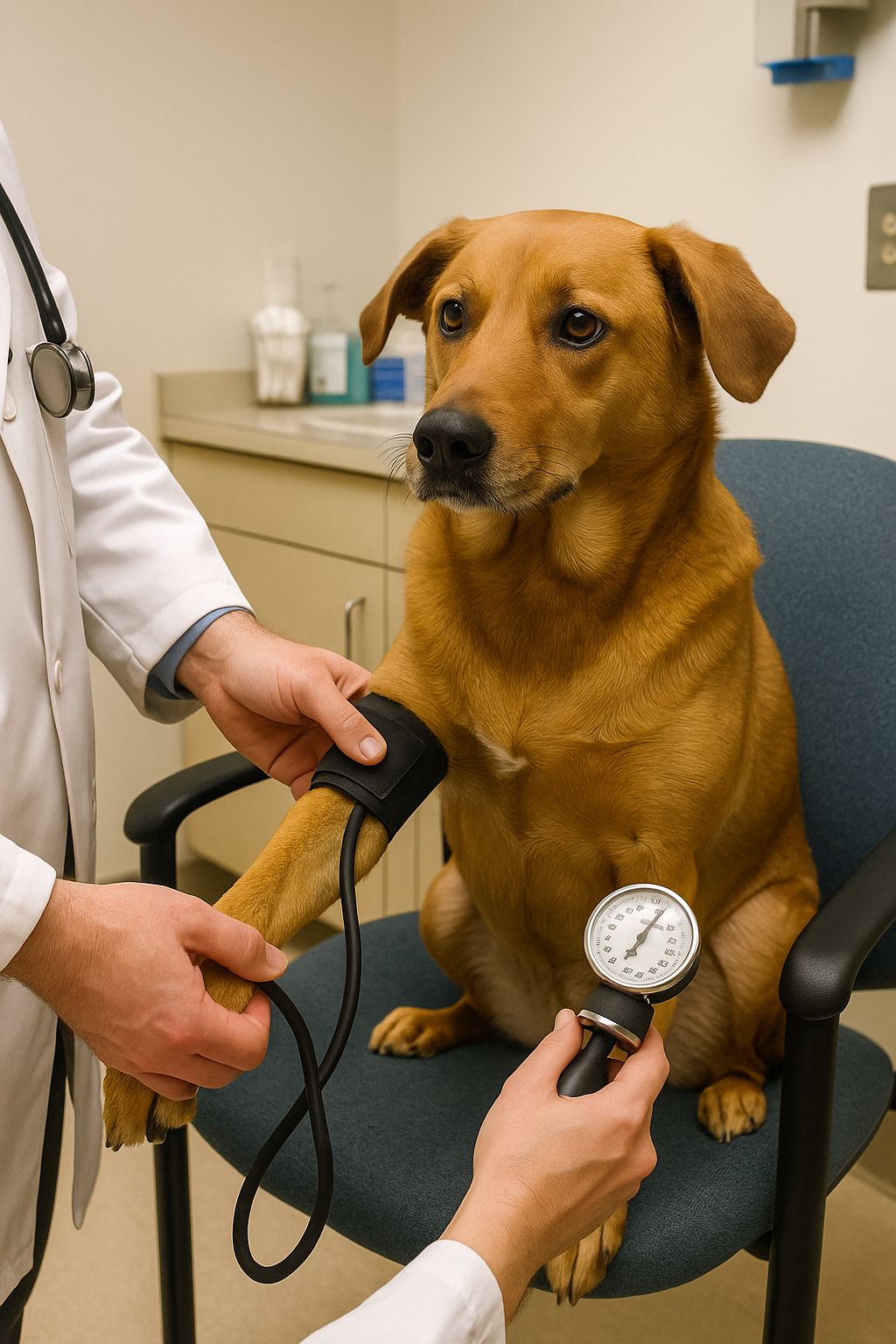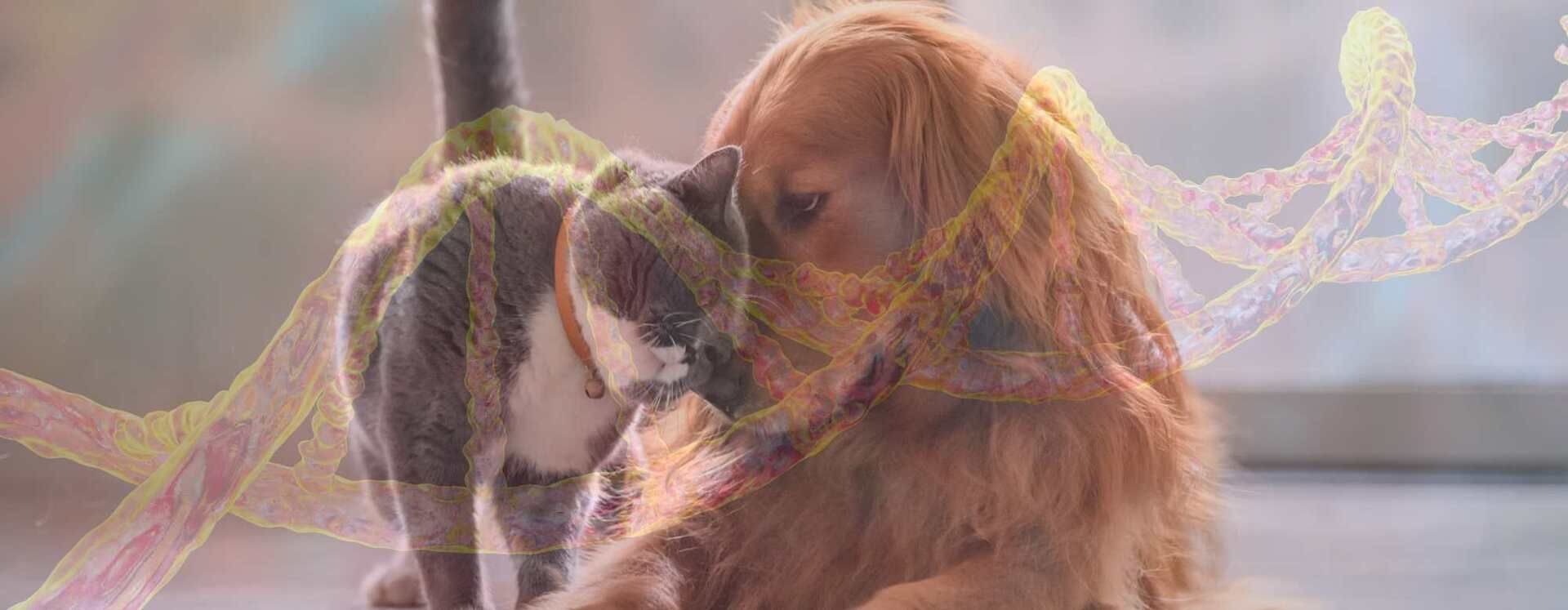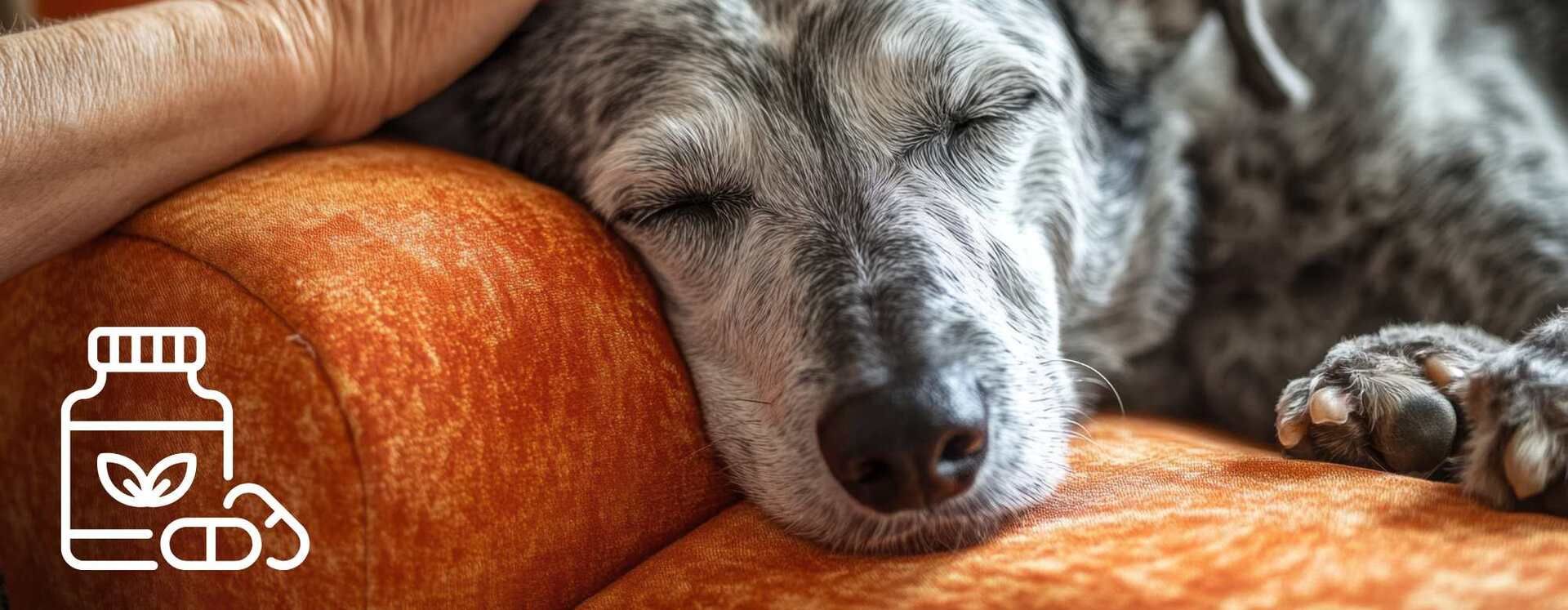- Lola & Herbie
- Posts
- 💌 Flunked Service Dog is The Best Boy
💌 Flunked Service Dog is The Best Boy
+ Is your pet's health pre-determined?

Hey, Petlovers!
Herbie has been fielding tons of emails from you all, and Lola has been manning (dogging?) the phones answering your questions. All of the attention is going to Herbie’s head, so we need to address this issue:
Our lolaherbie 20% off discount code wasn’t functioning properly last week. (Computers, right? 🙀) Click this link, and the discount will be waiting for you in your cart! Take a look, you never know when your pet or someone else’s might need a little support.

Now, let’s get to the good stuff:
💌 Flunked Service Dog is The Best Boy
🍃 Is Your Pet’s Health Determined by Genetics?
👯♀️ 🐾 Two Senior Sister Dogs find Their Forever Home
💸 Lotto Winner (at Bottom)
✍🏻 Submit poll to enter into lotto
Heartwarmers
💌 Flunked Service Dog is The Best Boy

🐶 Leo the Almost-Service Dog: Trained to support PTSD patients, Leo flunked out for being a little too joyful—but he never lost his gift for sensing emotions. He still gently “boops” his humans when he knows they’re feeling something deeply.
💔 Healing with a Nudge: When his new mom adopted him after losing her previous dog, Leo could sense her pain immediately. With one soft nudge and a soulful look, he helped ease her guilt and reminded her she was ready to love again.
🐾 Joy in His Own Way: Leo may not wear a service vest, but he’s a full-time emotional support superstar—teaching his sister Ellie how to boop, bringing over toys when he wants to go out, and always showing up when someone needs comfort.
Weekly Learning 📖 🐾
Can CBD Help Dogs with Arthritis? What the Research Says
We examined the available research on CBD’s effect of dogs with arthritis.
There are a handful of peer-reviewed studies that make interesting points as to the efficacy of hemp-based supplements for dogs with joint discomfort.
Take at our video below, and let us know what you think in the comments!
Front Page Pets
Sister Senior Dogs Leave The Shelter Together

🐾 Two Senior Sisters, One Forever Home: Sasha (15) and Daisy (12) were surrendered together and quickly bonded at the shelter—so when staff hoped they’d be adopted as a pair, they knew it was a long shot… until Andrew walked in and fell in love with both.
🚗 A Special Trip, A Life-Changing Decision: After spotting Sasha’s profile online, Andrew and his girlfriend drove from Wilmington to Sanford to meet the dogs. The moment they met, they knew—they couldn’t leave without both gentle, cuddle-loving girls.
🏡 Golden Years, Together at Last: Now Sasha and Daisy are living their best lives in a calm, loving home where they’re cherished daily. “They’ve given me far more than I’ve given them,” Andrew said. “I feel incredibly lucky.” 💛
Is Your Pet’s Health Predetermined?
Or is there something you can do to help them stay well?

According to the AVMA, about one in three dog owners and one in five cat owners give their pets supplements. Some are hoping to stay ahead of health issues, others are responding to a specific concern, and many are just trying to give their pets an extra edge with ingredients they’ve heard good things about.
But it brings up a key question: How much control do we actually have over a pet’s long-term health—and do supplements make a real impact?
As pet parents, we want to give our animals the best shot at a long, healthy life. At the same time, we don’t want to fall for clever marketing or invest in things that don’t actually work.
In the guide ahead, we’ll look at which aspects of your pet’s health are mostly written into their DNA—and which ones you may be able to influence with smart choices, daily routines, and the right kind of support.
How Much of Your Pet’s Health Is Written in Their Genes?

Recent estimates suggest that 30–40% of a dog or cat’s long-term health outcomes are influenced by genetics. That doesn’t mean everything is out of your hands—but it does mean some things may already be set in motion before your pet is even born.
While every animal is unique, their breed (or breed mix) can offer some useful clues about what conditions they may face as they age.
With hundreds of dog breeds and countless combinations of mixes, this guide won’t cover everything—but we can outline some general trends that apply to both dogs and cats.
Breed-Based Health Trends in Dogs
These aren’t hard rules, but they reflect real patterns that veterinarians and researchers see across certain groups of dogs.
🐕 Large Breeds
Big dogs tend to be more prone to joint issues like hip dysplasia and arthritis. Unless they come from lines with strong genetic screening—or fall into lighter, leaner categories like sighthounds or standard poodles—their size alone puts extra stress on bones and joints. Preventative joint care from a young age can make a real difference.
🐶 Flat-Faced Breeds
Brachycephalic dogs (like Bulldogs, Pugs, and Frenchies) often deal with chronic breathing issues, overheating, and skin fold infections. These challenges exist even in seemingly healthy individuals and should always factor into long-term care.
🐾 Small Dogs
Smaller dogs generally live longer than larger ones, but they have their own issues—dental disease, collapsing kneecaps (luxating patellas), and late-life organ decline are all more common in these breeds.
🐕🦺 Retrievers (Labs & Goldens)
Golden Retrievers and Labradors are two of the most beloved breeds—and also among the most genetically vulnerable to cancer. Their popularity has contributed to limited genetic diversity, which may explain their elevated risk. Ongoing studies, like the Golden Retriever Lifetime Study, are investigating this link further.
Genetic Risk in Cat Breeds
Cat breeds have distinct health profiles too, especially when it comes to structure, size, and inherited traits.
🐱 Flat-Faced Cats
Breeds like Persians, Himalayans, and Exotics often face respiratory problems, tear duct blockages, misaligned teeth, and skin infections due to their compact facial structure.
🐈 Large Cats
Maine Coons and Ragdolls are at higher risk for hypertrophic cardiomyopathy (a serious heart condition) and various joint issues, including hip dysplasia and arthritis. Their size can strain joints over time.
🧠 Slender Breeds
Siamese, Oriental Shorthairs, and Abyssinians have been linked to certain neurological disorders, asthma, and digestive sensitivity. While many live long lives, these breeds benefit from early intervention if anything seems off.
🐾 Mixed Breeds & Domestic Shorthairs
Cats without a strong breed lineage—like many rescue cats—are often more resilient genetically, though they’re still prone to common issues like kidney disease, dental problems, and thyroid imbalances later in life.
So… What Can You Actually Do?

It’s easy to feel discouraged when you hear that a condition is “in the genes”—but genetic risk doesn’t mean destiny.
Think of inherited health risks like road signs:
“Joint issues ahead—slow down and start support early”
“Watch for dental disease—daily brushing and checkups advised”
And for more serious genetic risks like cancer or heart disease? It’s like driving a car model known for a certain issue—you don’t throw away the car, but you check in more often, keep it tuned, and fix problems while they’re small.
The same goes for pets. Regular vet visits, proactive care, and knowing what to watch for can dramatically improve quality of life and outcomes, even in genetically high-risk animals.
Why We Tend to Miss It
We love our pets so deeply that it’s hard to imagine anything going wrong. It’s common to dismiss early warning signs as “just old age” or quirks. But the truth is, many age-related issues are manageable—or even preventable—when caught early.
We owe it to our pets to not just love them, but to stay informed, stay curious, and stay proactive.
Let me know if you'd like this adapted for newsletter, broken into an SEO blog format, or paired with CTAs for specific products or condition types.
❤️ Wrapping Up: Can Supplements Actually Help?

So if your pet has certain genetic risks on the horizon, how do you prepare?
Our advice: start with solid research.
When searching online, try adding the word "study" or "clinical research" to your query—it helps cut through hype and surface-level content.
Here’s what the science currently supports when it comes to supplements that can play a role in long-term pet wellness:
🐟 Omega-3 Fatty Acids
Omega-3s are among the most well-studied and widely recommended supplements in veterinary medicine. They help promote a balanced inflammatory response, which is key because chronic inflammation contributes to many conditions—from joint pain to skin issues to kidney disease.
🦴 Glucosamine, Chondroitin, MSM
This trio is a go-to first step for joint support, especially in breeds that are prone to arthritis or hip issues. Other ingredients with growing evidence include green-lipped mussel and turmeric, both shown to help with stiffness and mobility in dogs.
🦠 Probiotics
Probiotics are backed by numerous veterinary studies for their role in digestive function, immune support, and even allergy relief. Just make sure the product is species-specific (formulated for dogs or cats), since human strains won’t work the same way.
🧘♀️ L-Theanine & Alpha-Casozepine
These natural calming compounds—one from green tea, the other from milk protein—have shown promising results in helping pets manage stress, reduce reactivity, and stay calmer in tough environments, without causing sedation.
🌿 Full-Spectrum CBD
Veterinary studies from Cornell, Baylor, Colorado State, UF, and NC State have consistently found that CBD is safe for dogs and may help with joint comfort, mobility, stress regulation, and overall quality of life. It’s not a cure-all, but it can be a reliable part of a broader wellness plan.
So… Are Supplements The Solution?
Not exactly—but they can absolutely be part of the solution. Supplements that are backed by research, given in the right dose, and chosen with your pet’s unique needs in mind can offer consistent daily support.
Still, your vet should always be the one guiding the bigger picture—especially if your pet has an existing condition, is on medication, or has known genetic risks.
If you're looking for options to discuss with your vet, we’d love for you to explore our lineup. All Lolahemp products are third-party tested, vet-formulated, and made with trusted ingredients. Plus, our community of pet parents doesn’t hold back when it comes to sharing their results.
(Remember, use code lolaherbie at checkout for 20% off)
The Tail Wag Tribune
This Week’s Key Pet News

Man Impressed by Strangers Who Helped Him Find His Dog
🐾 Clyde's Wild Adventure Ends in a Happy Reunion: After river crossings, trail cam sightings, and a daring escape, Clyde made it home safe and sound—with just a tiny scratch!
🙌 Kindness at Every Turn: From helpful strangers to generous neighbors lending kayaks and spreading the word, the community showed up in full force.
💛 Small Town, Big Heart: This heartwarming search reminded everyone why places like Hungry Horse still shine—Montana kindness is alive and well.
“Leonardo da Pinchy” The Feline Underwear Thief
🐱 Master Thief, Local Legend: A 15-month-old cat in New Zealand named Leo has become a neighborhood celebrity for swiping socks, silk boxers, and even a $180 cashmere sweater.
📦 From Shame to Fame: His owner now returns the loot through WhatsApp and Facebook, asking the iconic question: “Are these your undies?”
💬 The Neighborhood Loves Him: Far from being annoyed, the locals are charmed—some even feel left out that Leo hasn’t burgled their laundry yet.Read more
🐾 Cat Reunites with Owner After 5 Years and 4,000 Miles
✈️ Cross-Continental Commitment: Olga Heigis flew from Germany to Michigan after learning her cat Trixie—missing since 2020—was found thanks to her microchip.
💕 An Emotional Reunion: After years of searching and heartbreak, Olga was finally able to hold her beloved black cat again, describing the moment as "incredible."
🏡 Happy Ending (and New Beginning): Trixie is now safe back in Germany, adjusting well to her feline siblings and enjoying the warmth of home once more.

Didn’t win, but still want to try our balm for your pet? Click here to shop Lolahemp Balm for Pets